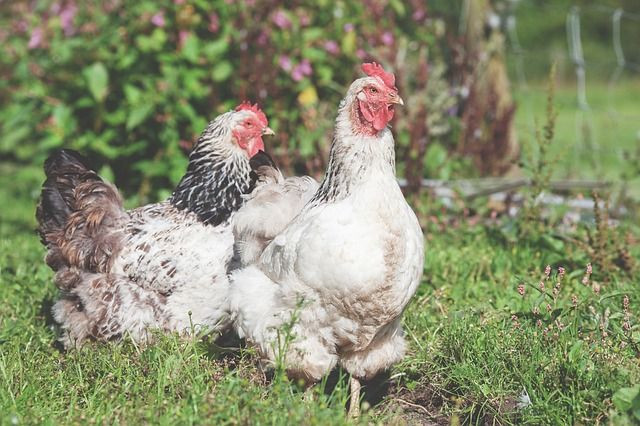Avian Influenza Outbreak 2017: Symptoms To Know As Cases Of Bird Flu Are Identified Across The Globe

Update 3/9/17: This story was updated to include information about an outbreak of bird flu at a Tennessee chicken farm.
The U.S. Department of Agriculture announced that, in response to an outbreak of H7 avian influenza, 73,500 chickens have been destroyed at a Tennessee facility, and a quarantine has been placed around 30 other farms in a six-mile radius from the affected farm. (The farm is in Lincoln County, near the Alabama border.) Bird flu rarely spreads to humans but can be deadly when it does. So far, no cases of human infection have been reported from the Tennessee outbreak.
Most forms of avian influenza strictly affect birds, but cases of human infection have been reported. With recent outbreaks of bird flu around the world, and reports of several deaths due to the disease in China, it’s important to know the symptoms, which will vary depending on the strain.
Read: New Bird Flu Strain Found in Indiana; US Government Puts New Emergency Plan Into Action in Response
At least four people have died this winter in China from H7N9 bird flu, Fox News reported. Meanwhile, an unidentified bird flu strain hit a Russian zoo, which resulted in the euthanization of 141 birds on Monday. According to AFP, other European countries have also been taking steps to avoid outbreaks.
H5N1 is the most common form of bird flu, and symptoms are typical of other types of flu, according to HealthLine. They include cough, diarrhea, respiratory difficulties, high fever, headache, muscle aches, runny nose, and sore throat. H5N1 has a high mortality rate, while other types of avian influenza don’t.
Laboratory testing is required to diagnose avian influenza in humans, the Centers for Disease Control and Prevention reported.
Human infection typically occurs when bird flu virus gets into a person’s eyes, nose, mouth, or is inhaled. Additionally, the spread of avian influenza viruses from one infected person to another has been reported, but it happens very rarely.
Read: New Avian Flu Viruses Send US Scientists Scrambling
According to the New York Times, your risk of getting the bird flu virus is higher if you work with poultry, travel to countries where the virus is present, or eat raw or undercooked poultry meat, or eggs.
Treating bird flu in humans also varies based on strain and symptoms.
See Also:
Avian Influenza: WHO says bird flu spread likely, human cases unlikely but possible
Published by Medicaldaily.com



























